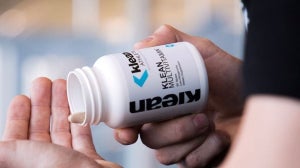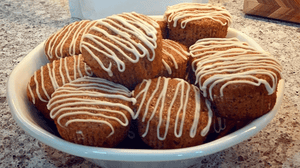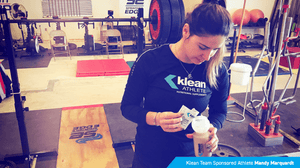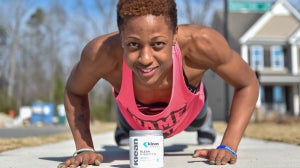
Whether you're an athlete or a workout enthusiast, you'll understand the importance of maintaining your energy levels, as it helps you push yourself and perform at your best. However, sometimes you might find yourself feeling more tired than usual, and wonder, ‘Why do I have no energy?’. This question is a vital one for anyone who wants to stay at the top of their game.
Discover some of the reasons why you could be experiencing low energy and tips on how to manage it.
Why Am I Waking up Tired with no Energy?
You may feel frustrated if you wake up tired, even after a good night’s sleep; especially if you’ve got a high volume of training to complete.
There are several different factors that could contribute to waking up tired and it’s important to find out the root cause in order to help manage it.
There are many potential causes of occasional fatigue. Here we will focus on some of the common underlying factors, from not getting enough quality sleep to nutrition.
Not Getting Enough Quality Sleep
Sleep is an important part of overall health, and it is especially vital for athletes. However, its importance can often be overlooked.
One study found that 97% of athletes surveyed failed to get the sleep they needed to feel rested the next day. The study also discovered that athletes participating in individual, rather than team sports, consistently got less sleep than they needed.
It is recommended that the majority of adults aged 18-60 years old get at least seven hours of sleep per night. However, due to their high-intensity training, athletes usually require slightly more to help maximize performance and recovery.

This is why it’s important to prioritize quality sleep by maintaining a consistent schedule and creating a comfortable sleep environment.
Does Caffeine Make You Tired?
Although caffeine is often thought to make you feel more alert and has even been found to delay the onset of fatigue during exercise, it might actually make you feel tired once it wears off.
The body absorbs 99% of caffeine within 45 minutes of consumption, which is when the effects will be most noticeable. Caffeine reduces tiredness and increases alertness by blocking adenosine receptors, which normally relay signals that make you feel sleepy.
But once this wears off, the adenosine that has accumulated may cause you to feel more tired than you did before consuming the caffeine. In fact, studies have suggested that those who regularly drink it may increase their sensitivity to some of the effects of adenosine due to a rise in the number of receptors in their central nervous system (CNS).
Although the daily upper limit of caffeine for a healthy adult is 400 milligrams, which is equivalent to around three flat whites, caffeine has a half-life of four to six hours, so it is advisable to stop consuming it around six hours before bed.
But it’s not just the rise in adenosine that can make you feel sleepy. Caffeine is considered to be a diuretic, which could lead to mild dehydration and make you feel occasionally fatigued. However, you can try and avoid this by being mindful of your fluid intake, aiming to consume a glass of water alongside each caffeinated beverage you drink.
Do Low Vitamin levels Make You Tired?
If you feel more tired than usual, it could be a sign to assess your diet and micronutrient levels.
Insufficient intake of vitamin B12 and iron over long periods may cause fatigue. In both cases, this is easy to rectify by ensuring adequate daily intake.
Iron Status in Athletes
Iron deficiency anemia has been identified by the World Health Organization (WHO) as the most common nutritional deficiency in the world, with up to 30% of people suffering from it.

Athletes need to pay particularly close attention to their iron levels, as ‘sports anemia’ is extremely prevalent among those who exercise regularly. It can be caused by a variety of exercise-related factors, including effects from sports, diet, and menstruation. A medical professional will be able to help you identify low iron levels, which is usually rectified through dietary changes and supplementation.
It is advised to consume iron-rich foods or supplements alongside a source of vitamin C in order to help maximize absorption. Additionally, the polyphenols found in tea, coffee, and red wine can inhibit absorption, so should not be consumed around the same time as a meal or when taking supplements.
Vitamin B12 Status and Occasional Fatigue
Vitamin B12 is responsible for the maintenance of your blood and nerve cells. A low vitamin B12 status can cause occasional fatigue and weakness.
Although there is limited research to suggest that athletes have a higher requirement of vitamin B12, it’s important to ensure that the recommended dietary allowance (RDA) of 2.4 micrograms a day is met, which is the equivalent of just under 25g of canned tuna.
Can Low Vitamin D Cause Tiredness?
People living with low vitamin D levels are incredibly common, with around one billion people worldwide. Athletes are just as likely to experience lower levels of vitamin D than any other member of the population, especially during the winter months.
Aside from exposure to the sun during the summer months, vitamin D can also be found in certain foods, such as salmon, egg yolks, fortified milk and cereals, red meat, and liver. However, some people may prefer to use a vitamin D supplement to easily stay on top of their intake.
It is also important to note that vitamin D toxicity can also cause you to feel tired, so it’s essential to ensure you do not to exceed the daily upper limit of 100 micrograms for adults.
So, whether you’ve been experiencing higher levels of stress than usual or you’ve been drinking one too many cups of coffee, there are a number of reasons you might be feeling tired and low on energy.
From nutrition advice to tips and tricks on how to improve your bedtime routine – find all the information you need to maximize your energy levels on our blog.
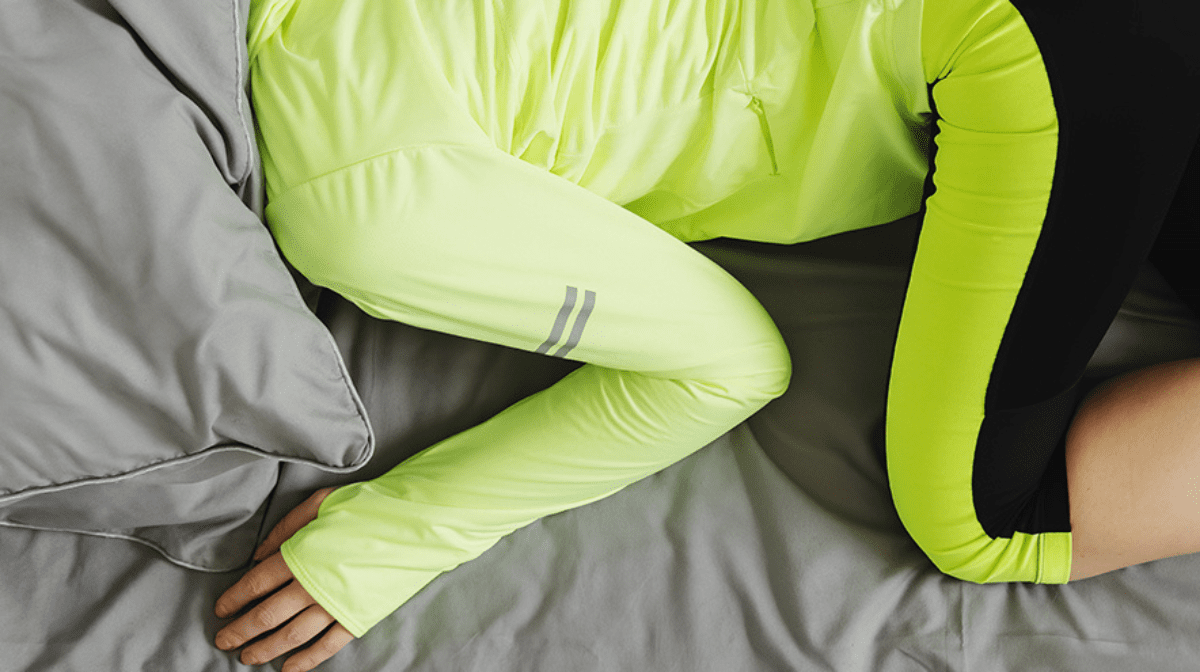
Sleep & Athletic Performance: Why Every Athlete Needs a Bedtime Routine
Explore our favourite supplements that help to enhance your bedtime routine.


